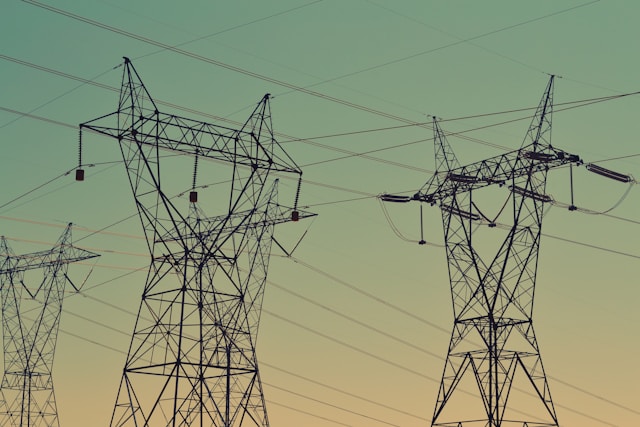Can You Refuse to Pay Your Electricity Bill?
We all know that paying our electricity bill is part of adulthood. But what happens when you’re faced with a bill that feels unjust or when service issues leave you frustrated? You might wonder, “Can I just refuse to pay?” In this article we will take a closer look at the ins and outs of refusing to pay your electricity bill, the potential consequences, and the options available to you as a consumer.
What Does It Mean to Refuse to Pay Your Electricity Bill?
Refusing to pay your electricity bill isn’t as simple as it sounds. It usually means you’re pushing back against a bill you think is unfair—whether due to outrageous charges, service problems, or other grievances. While it’s understandable to feel upset, it’s important to recognize that this action can lead to serious repercussions, like losing your electricity or damaging your credit score.
Legal Obligations: Can You Legally Refuse to Pay Your Electricity Bill?
When you sign up for electricity, you enter a contract with your utility provider. This contract generally includes an agreement that you’ll pay for the services you receive. Refusing to pay can be seen as breaking that contract, which is a risky move. Most states have laws that protect utility companies, meaning they can take action if you stop paying.
When Is It Justifiable to Refuse to Pay Your Electricity Bill?
There are definitely situations where refusing payment might feel justified:
- Service Issues: If your power goes out frequently or you’re dealing with unsafe conditions, it’s only natural to feel frustrated. For instance, Pacific Gas and Electric (PG&E), one of the largest electric companies in the U.S., has faced criticism for its service reliability during wildfires. Document any problems you’ve had with your provider and reach out for assistance before deciding to refuse payment.
- Disputes: If you notice mistakes on your bill, such as charges for usage you didn’t incur, you have the right to dispute it. Major companies like Florida Power & Light (FPL) and Duke Energy offer customer service channels specifically for resolving billing issues. Make sure you follow their processes to address discrepancies before considering refusal.
Consequences of Refusing to Pay Your Electricity Bill
Before you make a decision, consider the potential fallout:
- Immediate Consequences: Your utility company could disconnect your service for non-payment, often after giving you a warning. Plus, you might face late fees during this time.
- Long-Term Effects: Not paying your bill can hurt your credit score, making it harder to rent an apartment or get a loan. The utility might also pursue legal action to collect the debt, which is definitely something to think twice about.
Steps to Take Before You Refuse to Pay Your Electricity Bill
Before you consider refusing payment, here are some practical steps to take:
- Communicate with Your Provider: The first thing you should do is reach out to your electricity provider. Explain your concerns and see if you can work something out. For example, if you’re dealing with issues from a company like Duke Energy, they have dedicated support teams that can help address customer complaints.
- Payment Plans: If you’re struggling financially, ask about payment plans. Many utilities, including FPL, offer options to help you manage your bill without falling behind.
- Seek Assistance Programs: Don’t forget about local and federal programs that can help with utility bills. For instance, programs like LIHEAP (Low-Income Home Energy Assistance Program) provide financial aid to eligible households.
Your Consumer Rights: Can You Refuse to Pay Your Electricity Bill Without Penalty?
As a consumer, you have rights that protect you from unfair treatment by utility companies. Many states have laws requiring utilities to provide safe and reliable service. If you believe your rights have been violated, you can file a complaint with your local utility commission.
Alternative Dispute Resolution: What to Do Before Refusing to Pay Your Electricity Bill
If you’re in a dispute, consider alternative methods like mediation or arbitration. These processes can be less confrontational and may lead to a resolution that works for both you and your provider. Taking this route shows that you’re willing to cooperate before making any drastic decisions.
Regulatory Oversight: How Agencies Protect Your Right to Refuse to Pay Your Electricity Bill
Public utility commissions and similar agencies are there to protect you. They can help you understand your rights and assist in resolving disputes with your utility provider. If you feel like your concerns aren’t being taken seriously, reaching out to these agencies can be a smart move.
Conclusion: Making an Informed Decision About Refusing to Pay Your Electricity Bill
Refusing to pay your electricity bill isn’t a decision to be taken lightly. While there are valid reasons to consider this route, it’s crucial to explore all your options first. Communicate openly with your utility provider, seek assistance if you need it, and know your rights as a consumer. By doing so, you can navigate your situation more effectively and avoid the pitfalls that come with refusing payment.
FAQs Section
- Can I stop paying my electricity bill if I don’t use the service? Not unless you officially terminate your service. You’re still responsible for the bill.
- What should I do if I receive a bill that seems too high? Contact your provider to dispute the charges and ask for a detailed breakdown.
- How can I report poor service from my electricity provider? You can file a complaint with your local public utility commission.
- What are the risks of not paying my electricity bill? Not paying can lead to service disconnection, late fees, and a negative impact on your credit score.
